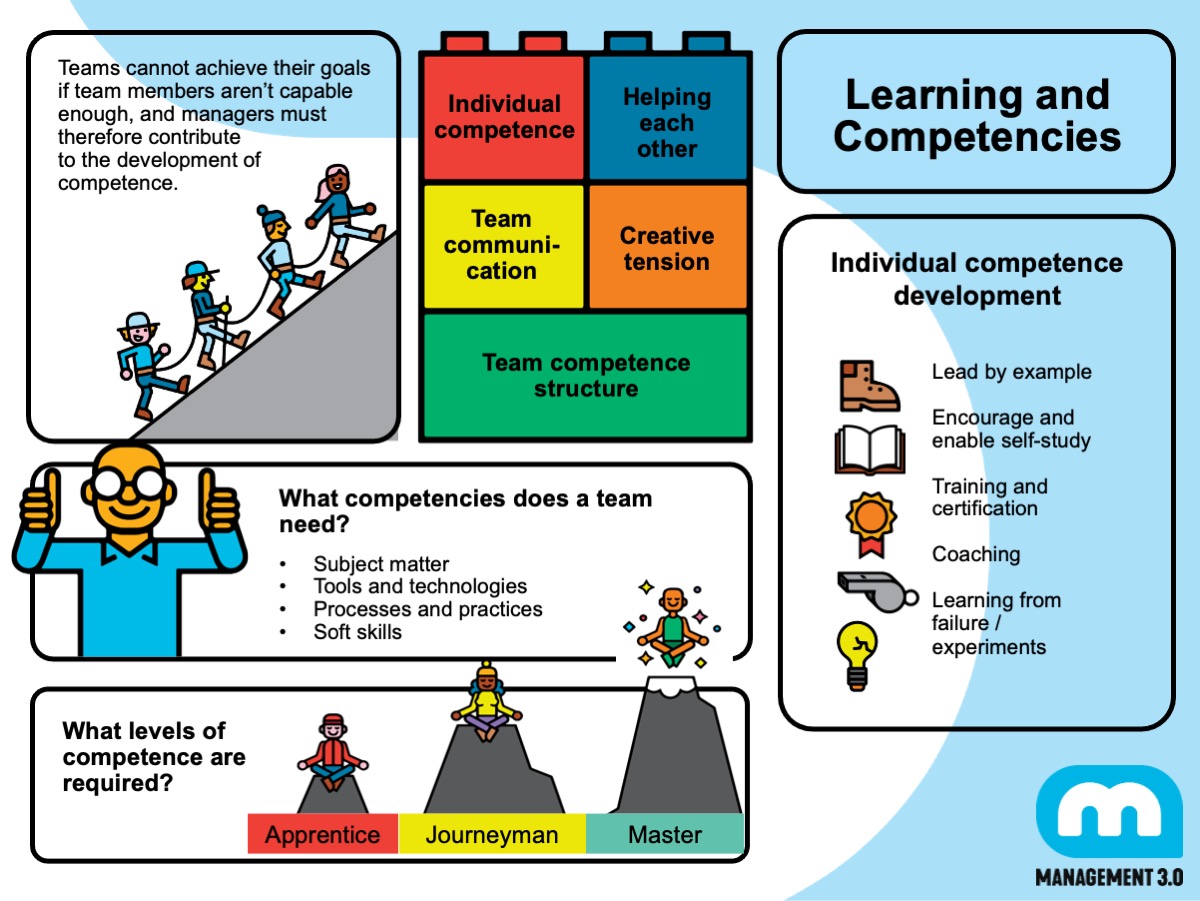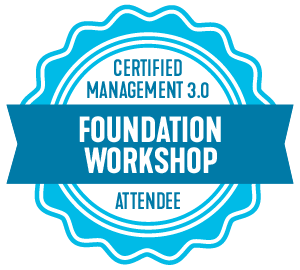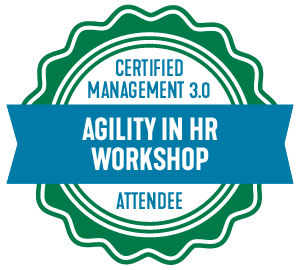The importance of team development: Teams cannot achieve their goals if team members aren’t capable enough. To combat this, managers must create an environment of continuous learning, thus contributing to the development of competence.
What will you learn?
- What competencies does a team need? What levels of competence are required?
- What is competence and how does it relate to teams?
- Five building blocks for learning and competencies to successfully develop your team:
1) Individual competence development
- Lead by example: Commit yourself to your own personal mastery. Lay the seed for a learning culture. Help create a learning organization.
- Encourage and enable self-study: Give time, resources and room.
- Training and certification: By itself a certificate doesn’t mean anything but it can catalyze all other competence measures.
- Coaching: Hire external coaches. Develop internal competence leaders.
- Learning from failure/experiments: It is important to celebrate learning in safe environments.
2) Team communication
- Reduce/bridge distance
- Document relevant outcome
- Establish rituals
- Listen/pay attention
- Nonviolent communication
- Powerful questions
3) Helping each other
- Shared vision/goal (see OKRs for more)
- Common ownership of responsibility
- Peer learning
- Knowledge hours
- Exploration days
4) Team competence structure
- Different competencies at different levels
- See Team Competency Matrix for more
5) Create tension
- How does diversity in a team, including different roles, support learning in a team.
- Learn more about team diversity
Lead by example: Ask for help – often! It is not a weakness but a strength!
What will we discuss in this module?
- How can you motivate people or teams to develop new skills?
- Should co-workers also contribute money or time to the development of their skills, or compensate the organization when they leave, As they also benefit personally from new skills?
- How do you measure competence development? How do you know if investments in competence development are paying off?




